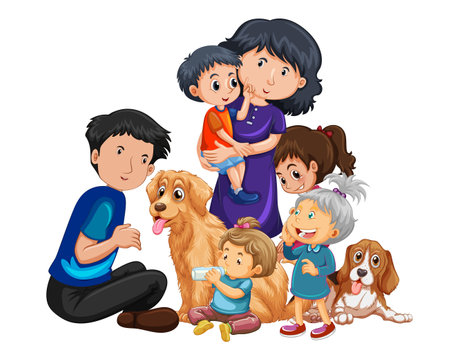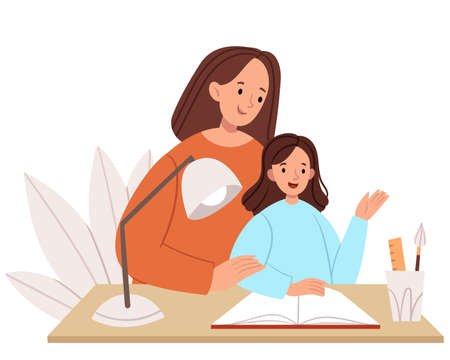Introduction to the Early Years Foundation Stage (EYFS)
The Early Years Foundation Stage (EYFS) is a statutory framework that underpins early years education and care in England. Designed for children from birth to five years old, the EYFS curriculum sets out the standards and requirements that all early years providers—including nurseries, preschools, and childminders—must follow to ensure children’s safety, wellbeing, and holistic development. This comprehensive framework covers a wide range of learning and developmental goals, with an emphasis on safeguarding children and promoting equality of opportunity. The EYFS is significant not only because it establishes a consistent approach to early childhood education across the UK but also because it lays the foundation for lifelong learning by fostering key skills such as communication, physical development, personal, social, and emotional growth. By adhering to these statutory requirements, early years practitioners—including childminders—play a vital role in shaping children’s future educational outcomes and supporting families within their local communities.
2. Who Are Childminders?
Childminders are registered childcare professionals in the UK who provide care and early education for children, typically in their own homes. They play a vital role within the Early Years Foundation Stage (EYFS) framework by offering a unique, home-based alternative to nursery or preschool settings. This individualised approach creates a familiar and nurturing environment, supporting children’s personal, social, and emotional development while also meeting statutory learning and welfare requirements.
Definition of Childminders in the UK
In the UK, childminders are defined as individuals who look after one or more children under the age of eight for more than two hours a day in exchange for payment, excluding close relatives. They must be registered with Ofsted (in England) or equivalent regulatory bodies in Scotland, Wales, and Northern Ireland. Registration ensures that childminders meet high standards of safety, health, and education, as set out by the EYFS statutory framework.
The Unique Role of Childminders Compared to Other Early Years Practitioners
Childminders differ from other early years practitioners such as nursery staff or nannies in several key ways:
Aspect |
Childminders |
Nursery Staff |
Nannies |
|---|---|---|---|
| Setting | Home-based | Group setting (nurseries/preschools) | Family’s home |
| Regulation | Registered with Ofsted/Equivalent | Registered with Ofsted/Equivalent | No formal registration required |
| Number of Children | Small groups (usually up to 6 children) | Larger groups | Usually 1 family’s children |
| Curriculum Delivery | EYFS curriculum tailored to individual needs | EYFS curriculum in group context | No statutory requirement but may follow EYFS if requested by parents |
| Flexibility | High (can offer irregular hours) | Set opening times and routines | Bespoke to family’s schedule |
| Environment | Home-like, mixed-age socialisation | Larger peer group interaction, structured activities | Siblings/family only socialisation |
The Place of Childminders in the Early Years Setting
Within the broader early years sector, childminders occupy an essential position. They bridge the gap between home care and formal educational settings, allowing for continuity in care and close partnerships with families. Their ability to provide flexible hours, cater to siblings together, and offer tailored learning experiences makes them invaluable for many working parents across the UK. Furthermore, their integration into local community networks supports holistic child development and smooth transitions into school environments.

3. Key Responsibilities of Childminders within the EYFS Framework
Childminders play a pivotal role in implementing the Early Years Foundation Stage (EYFS) curriculum across the UK. Their responsibilities are diverse and extend beyond basic childcare, encompassing the holistic development and safeguarding of young children. Understanding these key duties is essential for appreciating the integral part childminders play in early years education.
Supporting Children’s Learning and Development
One of the primary duties of a childminder under the EYFS framework is to support each child’s learning and development through structured and spontaneous play activities. Childminders are expected to create a stimulating environment that encourages curiosity, communication, and problem-solving skills. By tailoring activities to individual interests and developmental stages, they help children make steady progress towards the EYFS learning goals, covering areas such as personal, social, and emotional development; communication and language; and physical development.
Observing Progress and Planning Next Steps
Observation is a critical aspect of the childminder’s role. Regular monitoring enables them to assess each child’s progress against the EYFS milestones. These observations inform personalised planning, ensuring that every child receives appropriate support or challenge according to their needs. Through ongoing assessment, childminders can identify any areas where a child may require additional help and can collaborate with parents or external professionals if necessary.
Adhering to Safeguarding Policies
Safeguarding the welfare of children is central to all childcare provision in the UK. Childminders must adhere strictly to safeguarding policies outlined in the EYFS statutory framework. This includes maintaining up-to-date knowledge of safeguarding procedures, conducting regular risk assessments, promoting safe environments, and reporting any concerns about a child’s well-being to relevant authorities promptly. In addition, confidentiality and respect for family privacy are fundamental principles guiding their professional conduct.
Maintaining Professional Standards
Alongside their direct work with children, childminders must maintain high standards of professionalism. This involves keeping accurate records of attendance, accidents, and developmental progress, as well as participating in ongoing training to stay current with best practices in early years care. By fulfilling these responsibilities diligently, childminders contribute significantly to providing high-quality early education experiences for young children across the UK.
4. Promoting Health, Wellbeing and Safety
Childminders play a pivotal role in supporting children’s holistic development by prioritising physical health, emotional wellbeing, and safety in accordance with the Early Years Foundation Stage (EYFS) framework. By implementing evidence-based practices and adhering to national standards, childminders create environments where children can thrive physically, emotionally, and socially.
Physical Health: Nutrition and Activity
Encouraging healthy habits from an early age is integral to the EYFS. Childminders are responsible for providing balanced meals and snacks, accommodating dietary requirements, and fostering positive attitudes towards food. Additionally, daily routines incorporate active play indoors and outdoors to develop gross motor skills and promote cardiovascular health. The table below summarises key elements of physical health promotion:
| Aspect | Best Practice | EYFS Standard Reference |
|---|---|---|
| Nutrition | Provision of varied, balanced meals; modelling healthy eating; respecting allergies and cultural needs | Section 3: The safeguarding and welfare requirements – Food and drink |
| Physical Activity | Daily opportunities for movement; structured and unstructured play; encouraging outdoor exploration | Prime area: Physical development |
Emotional Wellbeing: Building Resilience and Confidence
The emotional environment curated by childminders significantly impacts children’s self-esteem, resilience, and social competence. Through nurturing relationships, consistent routines, and positive reinforcement, childminders help children express feelings appropriately, manage transitions smoothly, and form secure attachments. This aligns with the EYFS focus on personal, social, and emotional development as a foundation for lifelong mental health.
Strategies for Supporting Emotional Wellbeing:
- Offering comfort and reassurance during times of distress or change
- Encouraging open communication about emotions through stories or circle time
- Praising effort rather than outcome to foster a growth mindset
- Facilitating peer interaction to build friendships and cooperation skills
Safety: Creating Secure Environments
The safeguarding of children remains paramount in all early years settings. Childminders must conduct thorough risk assessments of both indoor and outdoor spaces, maintain up-to-date paediatric first aid qualifications, and implement robust safeguarding procedures as stipulated by the EYFS.
Key Safety Measures:
- Regularly reviewing emergency procedures such as fire drills and evacuation plans
- Ensuring safe storage of hazardous materials out of children’s reach
- Maintaining appropriate adult-to-child ratios for close supervision at all times
- Upholding clear policies for managing illness, medication administration, and accident reporting
By embedding these best practices within their daily routines, childminders not only comply with statutory guidance but also lay the groundwork for lifelong health literacy, resilience, and safety awareness among young children across the UK.
5. Partnership with Families and the Community
Childminders occupy a pivotal position within the Early Years Foundation Stage (EYFS) framework by fostering meaningful partnerships with families and the wider community. Recognising parents and carers as a child’s first educators, childminders actively engage with families to share observations, developmental progress, and strategies that support learning both at home and in the setting. This collaborative approach ensures continuity of care and learning, which is central to the EYFS ethos.
Furthermore, childminders act as connectors between families and valuable community resources. They often guide parents towards local health visitors, speech and language therapists, children’s centres, and libraries—integrating these services into their provision to meet diverse needs. By establishing strong links with schools, playgroups, and cultural organisations, childminders help children transition smoothly into formal education settings while broadening their social and cultural experiences.
This partnership model not only strengthens family engagement but also reflects the inclusive values embedded in the British early years system. Through regular communication, shared decision-making, and signposting to support networks, childminders empower families to actively participate in their child’s development. Ultimately, this collaborative framework enhances each child’s sense of belonging and enriches their early years journey within the UK context.
6. Professional Development and Support for Childminders
Ensuring high-quality provision within the Early Years Foundation Stage (EYFS) framework relies significantly on the ongoing professional development and robust support systems available to childminders across the UK. This section explores the avenues for training, regulatory oversight, and continuous professional growth that are integral to enhancing childminding practice.
Analysis of Available Training
Childminders are required to undertake a range of mandatory training before registering with Ofsted or a childminder agency. This typically includes courses in safeguarding, paediatric first aid, and EYFS-specific pedagogy. Beyond initial requirements, local authorities, professional associations such as PACEY (Professional Association for Childcare and Early Years), and private training providers offer CPD (Continuing Professional Development) opportunities. These cover topics ranging from supporting children with additional needs to implementing play-based learning strategies, allowing childminders to tailor their skills to the diverse needs of children under their care.
Regulatory Body Support: The Role of Ofsted
Ofsted plays a pivotal role in maintaining standards within early years settings through regular inspections and guidance. Inspections assess not only compliance with statutory requirements but also the quality of teaching, learning environments, and safeguarding practices. Ofsted’s published reports offer valuable feedback, enabling childminders to identify strengths and address areas for improvement. Additionally, Ofsted provides online resources and helplines to ensure that childminders remain informed about evolving regulations and best practices within the EYFS framework.
Avenues for Ongoing Professional Growth
Professional growth extends beyond formal qualifications. Peer networks, local authority forums, and membership in professional bodies provide vital platforms for sharing experiences and accessing up-to-date information on early years education. Many childminders benefit from online communities where they can exchange resources and practical advice relevant to the unique challenges of home-based childcare settings. Furthermore, attending workshops, conferences, and seminars allows childminders to remain at the forefront of pedagogical innovations and policy changes affecting early years provision in the UK.
Fostering a Culture of Reflective Practice
The EYFS encourages reflective practice as a core component of professional development. By regularly evaluating their own practice against EYFS standards, seeking constructive feedback from parents and colleagues, and engaging in self-directed study, childminders reinforce a cycle of continuous improvement. This commitment not only enhances their own confidence and competence but also ensures consistently high outcomes for children in their care.
Conclusion
Sustained access to quality training, comprehensive regulatory support from bodies like Ofsted, and a strong culture of ongoing professional development are essential in empowering UK childminders within the EYFS curriculum. Together, these elements underpin the delivery of safe, nurturing, and educationally rich environments that promote every child’s holistic development during their formative early years.

